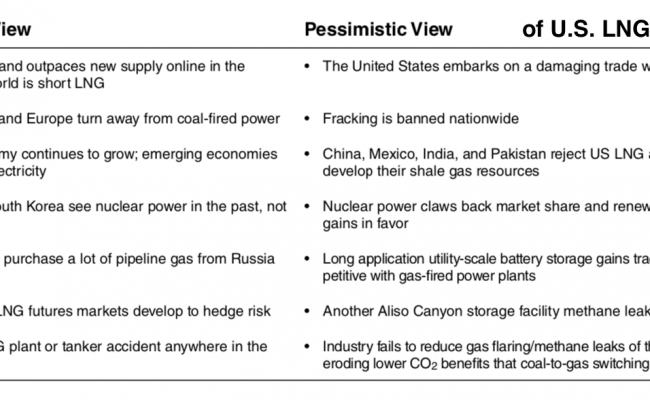This article addresses pros and cons of natural gas use in developing countries and concludes there are no silver bullets for addressing climate change. The primary cause of the increase in CO2 emissions was a robust global economy in 2018. Substantial energy efficiency improvements, widespread deployment of renewables and coal-to-gas switching mandated by government policies in China and retirement U.S. coal power plants with gas-fired power generating units offset the increase in CO2 emissions. The dynamics changed in 2017 and 2018 due to changes in government policies which allowed a resurgence in coal-fired power generation in China. Also, wind and solar did not scale-up fast enough to meet the increase in energy demand. While U.S. LNG exports can help reduce CO2 emissions in the global power sector through coal-to-gas and liquid fuels–to-gas switching, the benefits may be far less than expected unless gas flaring and methane leaks are reduced. Read more
.

